认识自定义指令
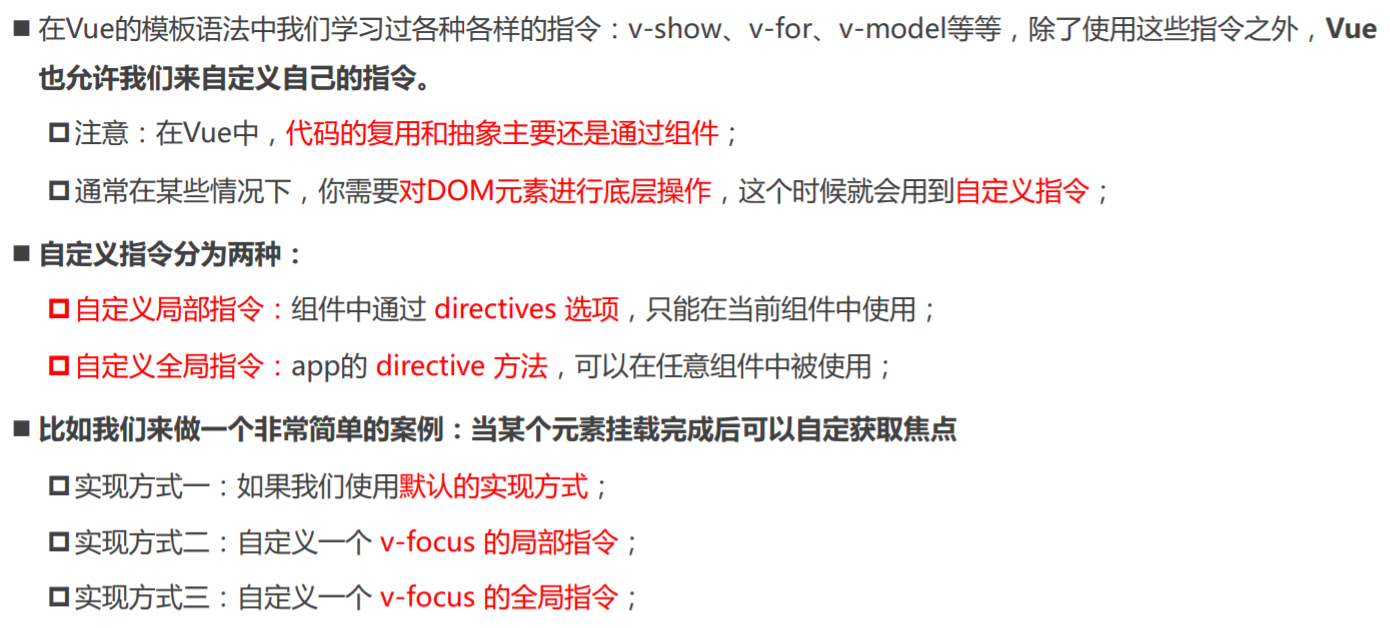
实现方式一:聚焦的默认实现
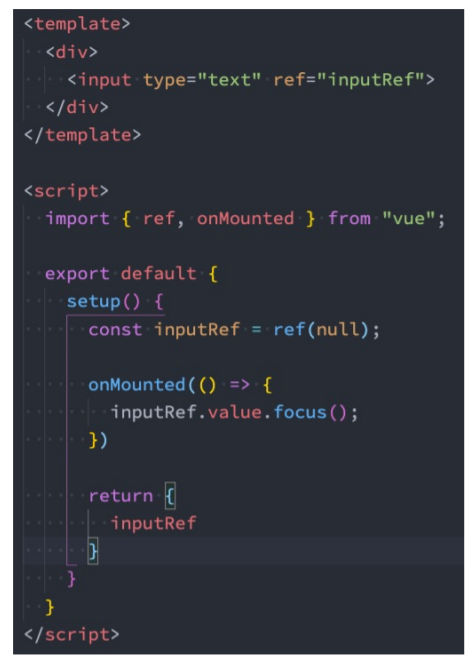
实现方式二:局部自定义指令
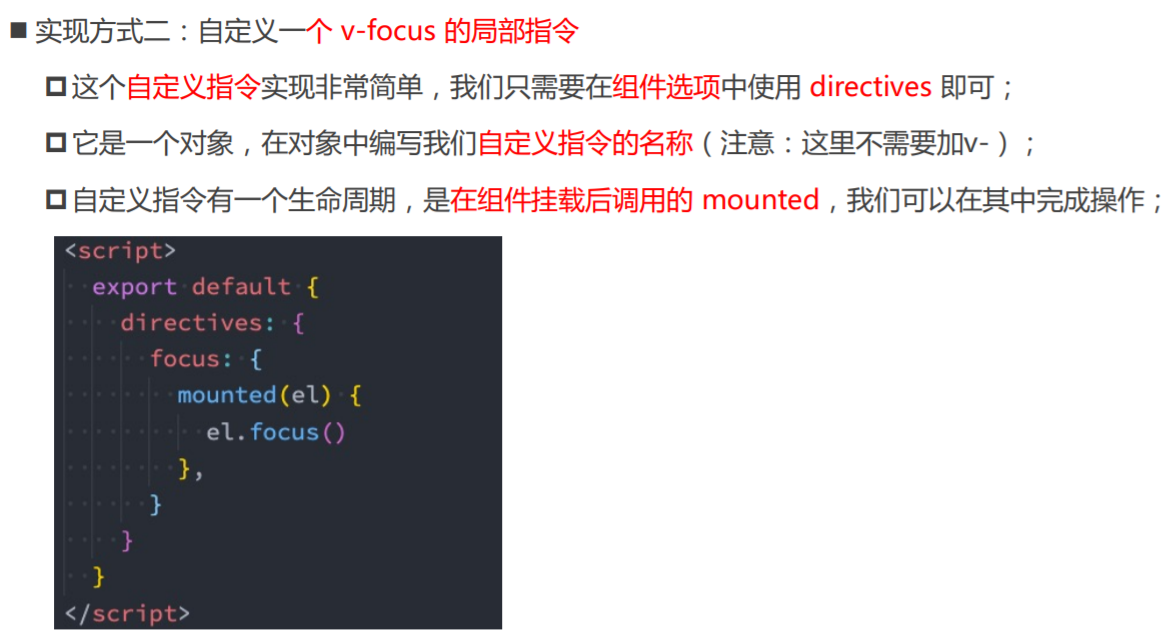
方式三:自定义全局指令
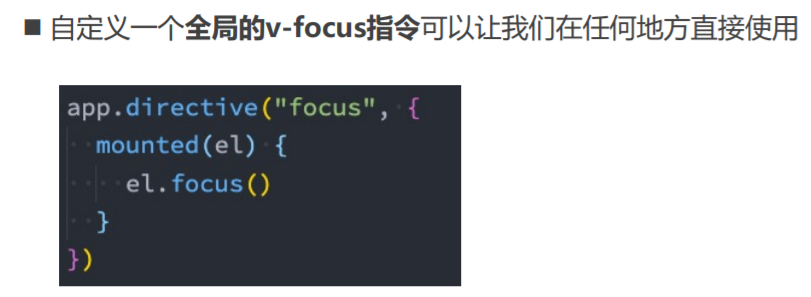
指令的生命周期

指令的参数和修饰符
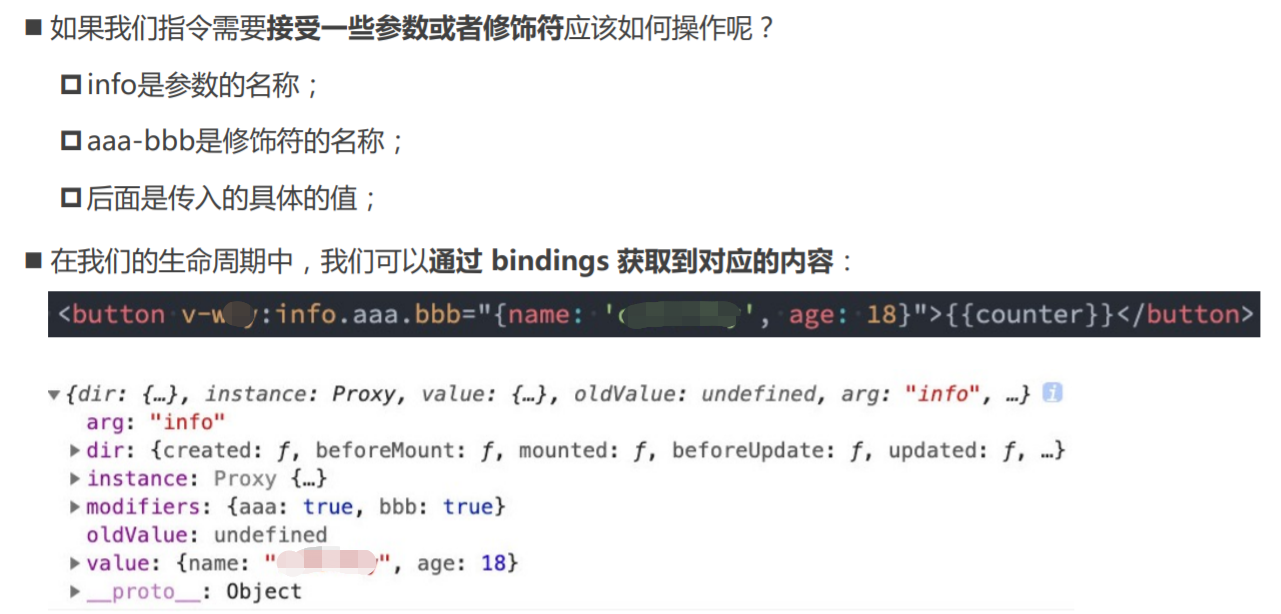
自定义指令练习
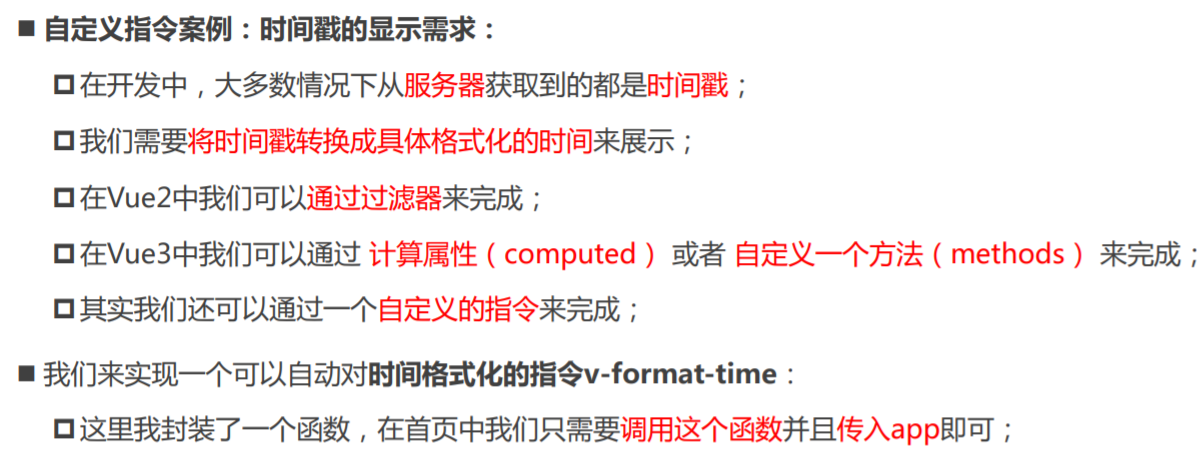
时间格式化指令
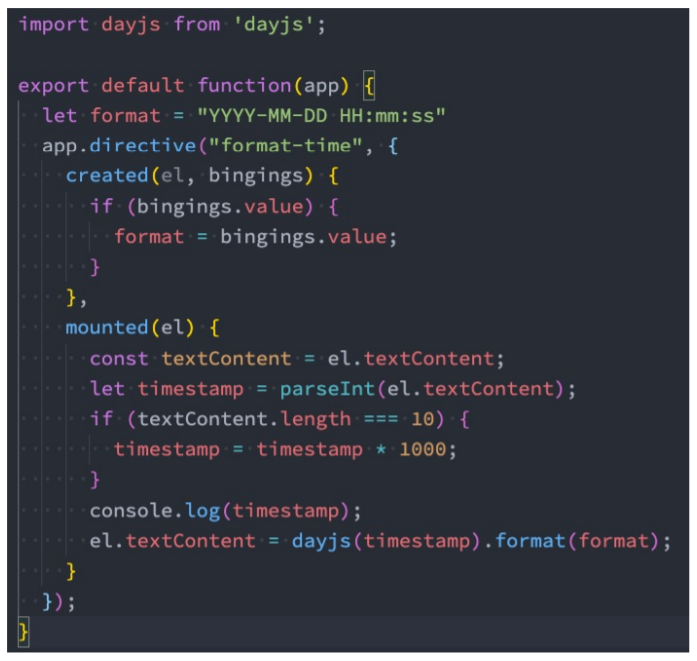
main.js
import { createApp } from 'vue'
import App from './04_teleport内置组件/App.vue'
import registerDirectives from './directives'
import pluginObject from './plugins/plugins_object'
import pluginFunction from './plugins/plugins_function'
const app = createApp(App)
registerDirectives(app)
// 使用插件,use传入插件对象即可自动安装,即内部执行插件对象pluginObject.install(app)
app.use(pluginObject)
app.use(pluginFunction)
app.directive('focus', {
mounted(el, bindings, vnode, preVnode) {
console.log('focus mounted')
el.focus()
},
})
app.mount('#app')
01_默认的实现.vue
<template>
<div>
<input type="text" ref="input" />
</div>
</template>
<script>
import { ref, onMounted } from 'vue'
export default {
setup() {
// 开始传空值,最开始去里面取到的是空值,自动绑定后,元素就会作为它的值
const input = ref(null)
// onMounted是函数,需要导入,directives中的mounted是属性
onMounted(() => {
input.value.focus()
})
return {
input,
}
},
}
</script>
<style scoped></style>
02_局部自定义指令.vue
<template>
<div>
<input type="text" v-focus />
</div>
</template>
<script>
export default {
// 局部指令
directives: {
// 指令名称,不需要在前面加-
focus: {
// 当上面的input挂载到DOM元素上,就会执行mounted生命周期
// 参数是自动传入的,binding.value 是我们传递给指令的值
// onMounted是函数,需要导入,directives中的mounted是属性
mounted(el, bindings, vnode, preVnode) {
console.log('focus mounted')
el.focus()
},
},
},
}
</script>
<style scoped></style>
03_生命周期和参数-修饰符.vue
<template>
<div>
<!-- haha要用双层引号包裹 -->
<button v-if="counter < 2" v-why.aaaa.bbbb="'haha'" @click="increment">
当前计数: {{ counter }}
</button>
</div>
</template>
<script>
import { ref } from 'vue'
export default {
// 局部指令
directives: {
why: {
created(el, bindings, vnode, preVnode) {
console.log('why created', el, bindings, vnode, preVnode)
console.log(bindings.value)
console.log(bindings.modifiers)
},
beforeMount() {
console.log('why beforeMount')
},
mounted() {
console.log('why mounted')
},
beforeUpdate(el) {
console.log('why beforeUpdate')
console.log(el.innerHTML)
},
updated(el) {
console.log('why updated')
console.log(el.innerHTML)
},
beforeUnmount() {
console.log('why beforeUnmount')
},
unmounted() {
console.log('why unmounted')
},
},
},
setup() {
const counter = ref(0)
const increment = () => counter.value++
return {
counter,
increment,
}
},
}
</script>
<style scoped></style>
04.时间格式化指令.vue
<template>
<h2 v-format-time="'YYYY/MM/DD'">{{ timestamp }}</h2>
</template>
<script>
export default {
setup() {
const timestamp = 1624452193
return {
timestamp,
}
},
mounted() {
console.log('app mounted')
},
}
</script>
<style scoped></style>
index.js
import registerFormatTime from './format-time';
export default function registerDirectives(app) {
registerFormatTime(app);
}
import dayjs from 'dayjs'
export default function (app) {
// DD:大写,否则显示星期几;HH:大写是24小时制,小写是12小时制
let formatString = 'YYYY-MM-DD HH:mm:ss'
app.directive('format-time', {
// 初始化
created(el, bindings) {
if (bindings.value) {
formatString = bindings.value
}
},
mounted(el) {
console.log('format mounted')
const textContent = el.textContent
let timestamp = parseInt(textContent)
if (textContent.length === 10) {
timestamp = timestamp * 1000
}
el.textContent = dayjs(timestamp).format(formatString)
},
})
}
认识Teleport
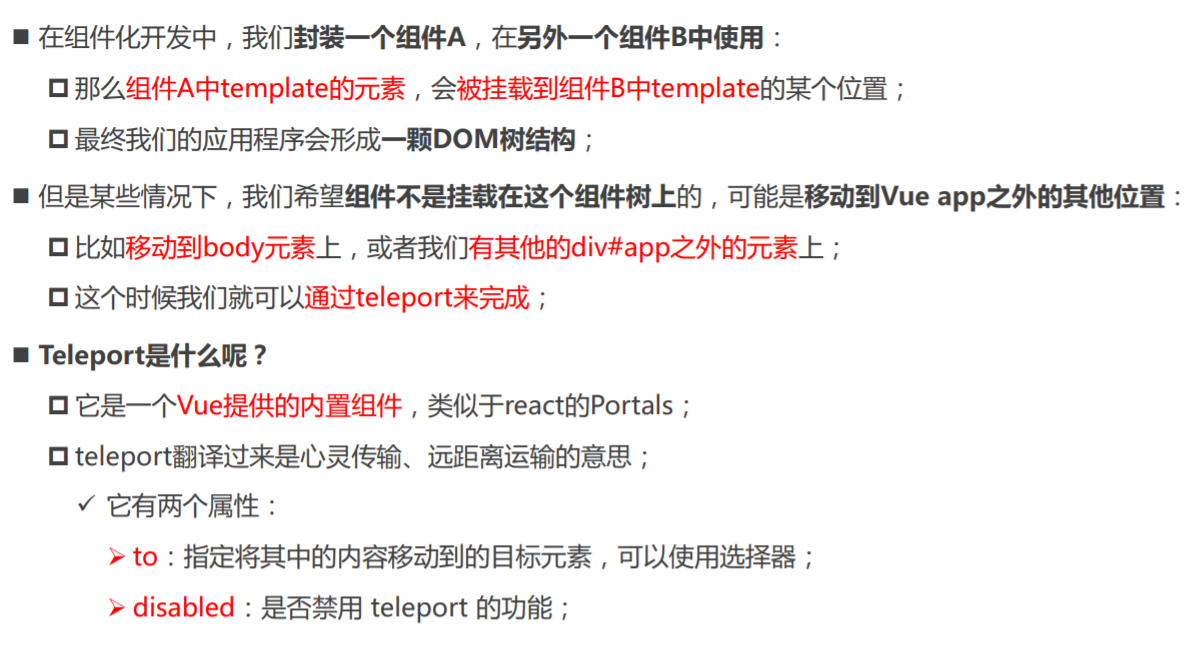
下面代码的效果
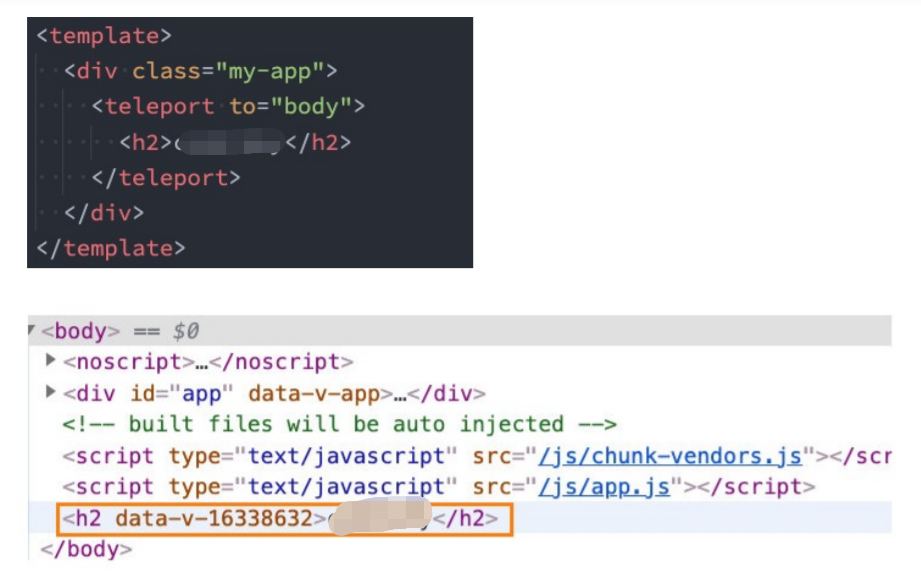
和组件结合使用
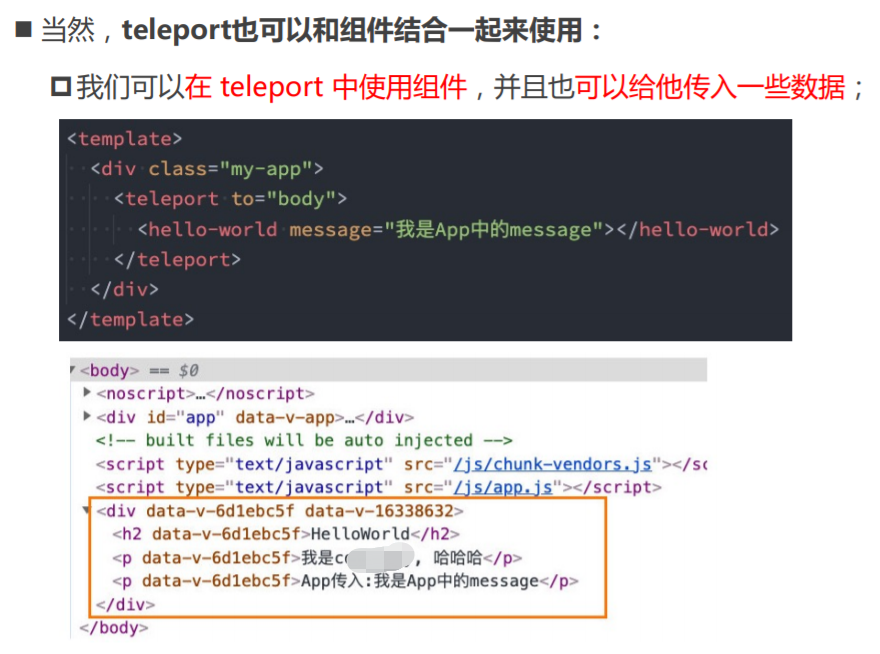
多个teleport
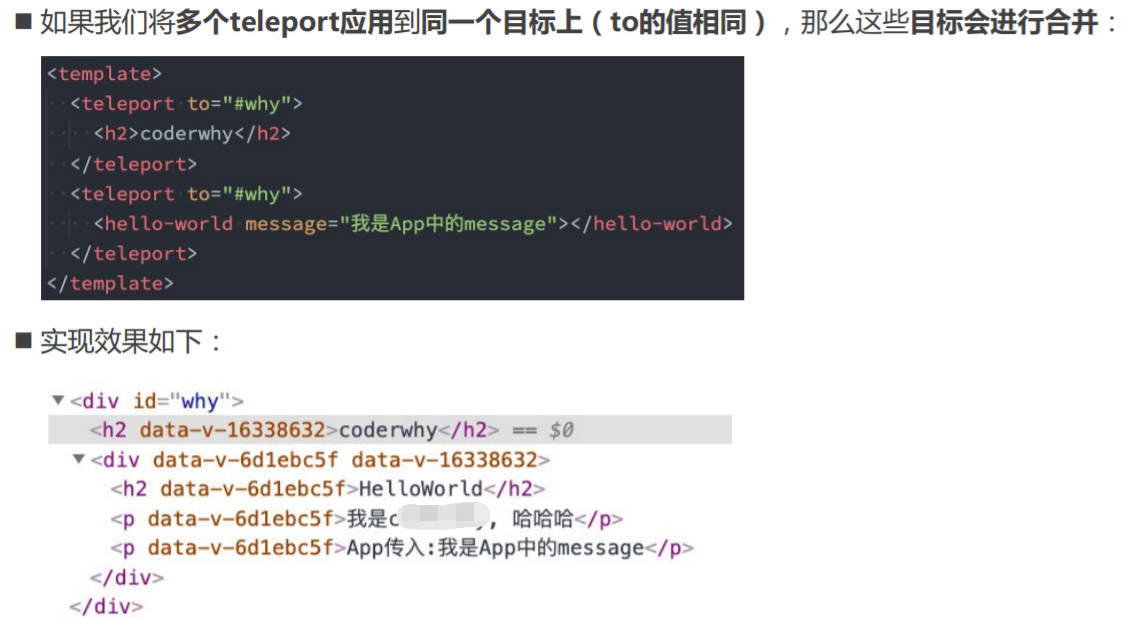
App.vue
<template>
<div class="app">
<teleport to="#why">
<h2>当前计数</h2>
<button>+1</button>
<hello-world></hello-world>
</teleport>
<teleport to="#why">
<span>呵呵呵呵</span>
</teleport>
</div>
</template>
<script>
import { getCurrentInstance } from 'vue'
import HelloWorld from './HelloWorld.vue'
export default {
components: {
HelloWorld,
},
setup() {
const instance = getCurrentInstance() // 拿到组件实例
// appContext:app上下文,就相当于app了
console.log(instance.appContext.config.globalProperties.$name)
},
mounted() {
console.log(this.$name)
},
methods: {
foo() {
console.log(this.$name)
},
},
}
</script>
<style scoped></style>
HelloWorld.vue
<template>
<div>
<h2>Hello World</h2>
</div>
</template>
<script>
export default {}
</script>
<style scoped></style>
认识Vue插件
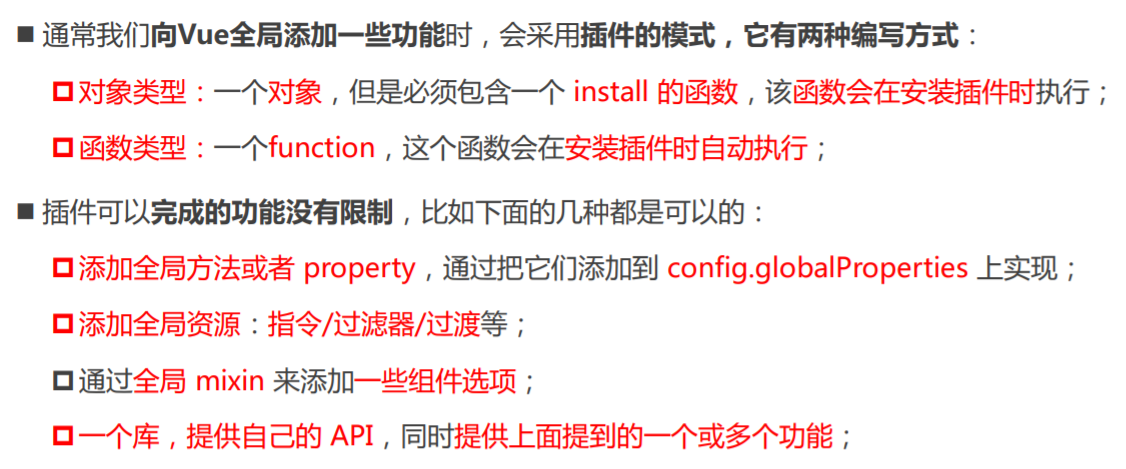
插件的编写方式
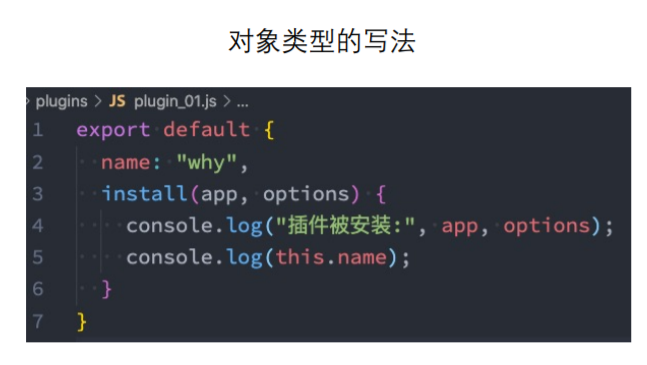
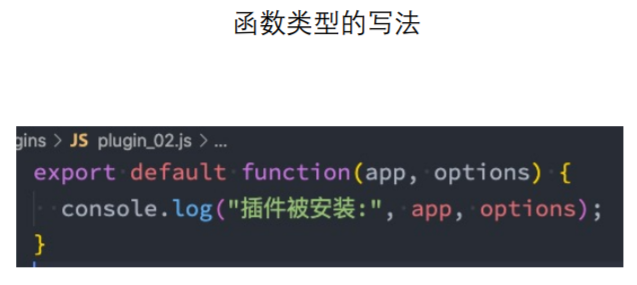
plugins_object.js
export default {
// app是默认传递过来的参数
install(app) {
// 【这样的话,$name就全局可用。】
app.config.globalProperties.$name = 'haha'
},
}
plugins_function.js
export default function (app) {
console.log(app)
}
nexttick

App_nexttick.vue
<template>
<div>
<h2>{{ counter }}</h2>
<button @click="increment">+1</button>
<h2 class="title" ref="titleRef">{{ message }}</h2>
<button @click="addMessageContent">添加内容</button>
</div>
</template>
<script>
import { ref, onUpdated, nextTick } from 'vue'
export default {
setup() {
const message = ref('')
const titleRef = ref(null)
const counter = ref(0)
const addMessageContent = () => {
message.value += '哈哈哈哈哈哈哈哈哈哈'
// 更新DOM 【更新DOM后,再回头执行nextTick里面的回调函数,相当于延迟。】
nextTick(() => {
console.log(titleRef.value.offsetHeight)
})
}
const increment = () => {
for (let i = 0; i < 100; i++) {
counter.value++
}
}
onUpdated(() => {}) // 【只要组件界面有更新都会执行onUpdated。】
return {
message,
counter,
increment,
titleRef,
addMessageContent,
}
},
}
</script>
<style scoped>
.title {
width: 120px;
}
</style>


















